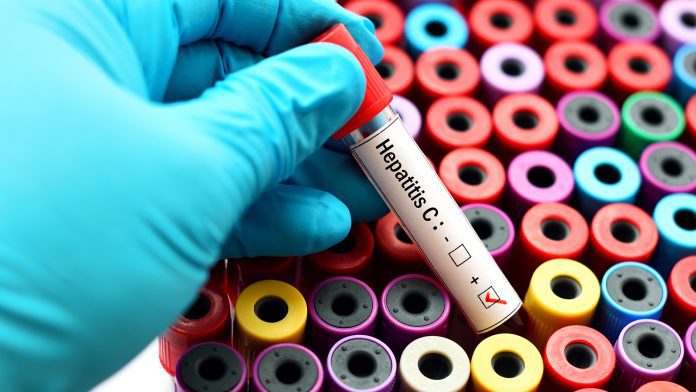
Researchers from MedUni Vienna have found that long-term hepatitis C treatment can be improved by non-invasive tests, despite doubts surrounding the method.
A team of researchers, led by Georg Semmler and Mattias Mandorfer from the Division of Gastroenterology and Hepatology at MedUni Vienna, worked alongside researchers from Spain in the new study.
The findings refute concerns about the use of non-invasive testing in hepatitis C treatment. The researchers dispel doubts about the accuracy of these tests and make recommendations for follow-up treatment and aftercare.
The findings have been published in the Journal of Hepatology.
Hepatitis C can have long-term health effects
Even after someone has been cured of hepatitis C, portal hypertension remains a major factor in driving the development of complications in advanced liver disease.
In the study, the research team analysed all published data on non-invasive tests and minimally invasive hepatic venous pressure gradient measurements performed on patients before and after hepatitis C treatment.
The researchers closely evaluated paired measurements from 418 patients, allowing them to confirm the accuracy of two non-invasive tests. These tests were a US-based liver stiffness measurement and platelet count, and a simple blood test. Based on their findings the researchers were able to develop a risk stratification system for patients who had completed hepatitis C treatment.
The results have already been included in the international recommendations for the management of portal hypertension.
“The results of the study are therefore already contributing to the personalised follow-up of these patients worldwide, eliminating the need for unnecessary, sometimes burdensome examinations and enabling early initiation of preventive measures where appropriate,” said first author Georg Semmler.
Adequate aftercare is needed after hepatitis C treatment
Hepatitis C is a widespread viral infection that is common throughout the world. The disease has been fully treatable with antiviral drugs for many years. An estimated 95% of cases can be cured through drug treatment.
However, the condition can lead to negative long-term health issues such as scarring of the liver, also known as advanced liver disease. Aside from hepatocellular carcinoma, these complications are directly caused by the presence of portal hypertension. Portal hypertension refers to high blood pressure in large veins that transport blood from the gut to the liver.
To provide follow-up care after hepatitis C treatment, it is important that portal hypertension can be accurately measured through non-invasive testing.
“Our study has made it possible to accurately predict individual risk after hepatitis C has been cured. While it is possible to cease surveillance in a high proportion of patients, it is urgently recommended that preventive drug treatment is initiated or continued in others,” said study leader Matthias Mandorfer.
























